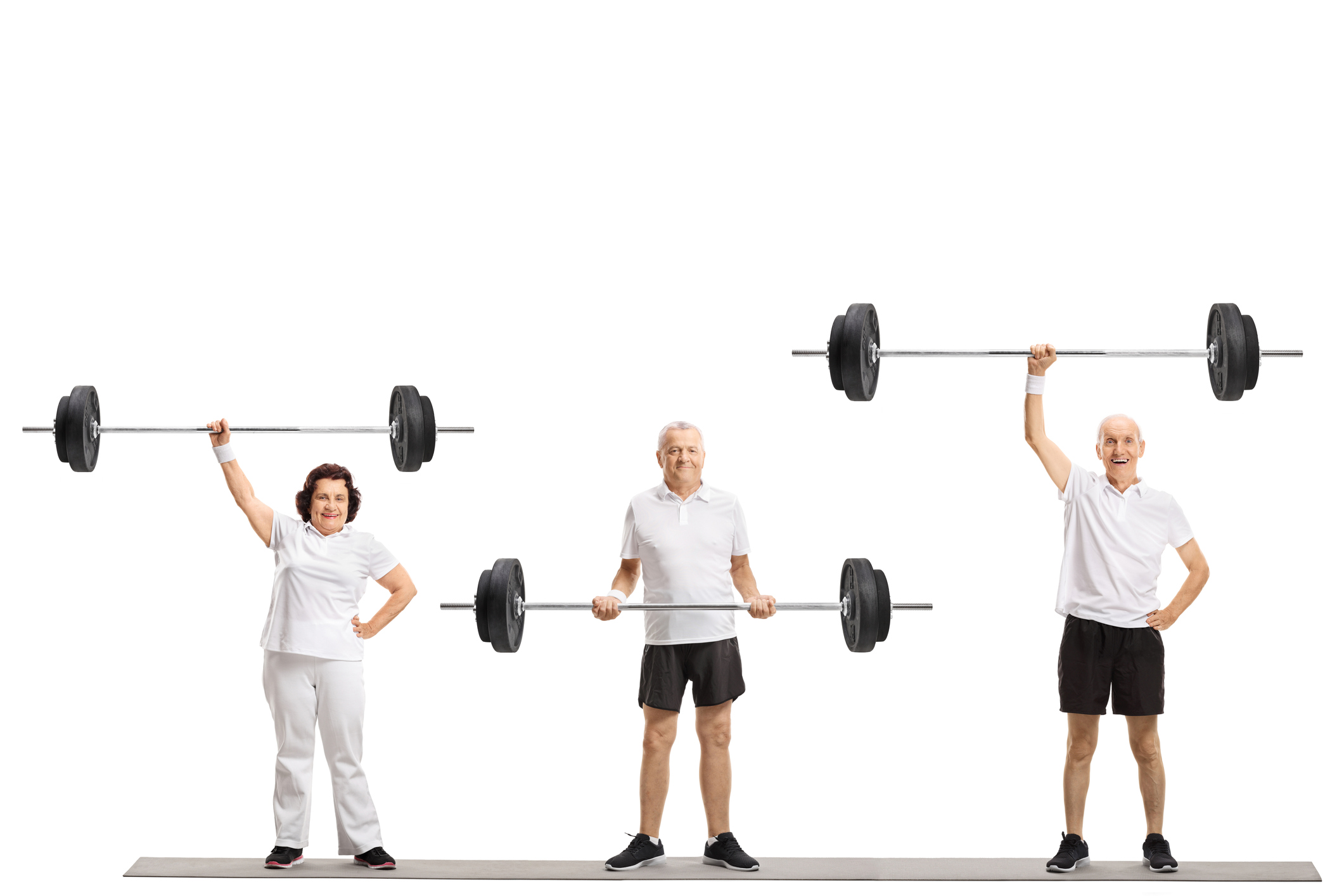Strength training is important for older adults to prevent muscle loss associated with aging, preserve physical function, improve balance and ultimately remain independent longer. But new research also finds that weight lifting can have an emotional impact on the overall well-being and health of seniors.
According to a recent New York Times report, many studies have discovered the physical, even the cognitive benefits of strength training. But although very few older American regularly lift weights, even elderly people in their 80s can benefit from resistance training and improve their strength and overall health. A study out of the University of Jyvaskyla in Finland found that nearly half of older adults who participated in a 6-month regular resistance training program were still lifting weights on their own at least once a week after the formal training concluded.
Researchers intentionally and abruptly halted training and access to the university’s gym facilities while providing participants with information about low cost alternative gyms in the area. Surprisingly, many took the initiative to continue their strength training exercises because they felt capable of using the equipment in any gym and continue the work themselves, maintaining and improving on the gains they made during the course of the study.
With a little help to get started, older adults can benefit greatly from individual or group strength training activities. Not only did the volunteers in the Finnish study report confidence lifting weights in the gym, but they also found they were able to use their improved strength to participate in other activities. The key is to start off slowly and learn proper technique and safety from a trained instructor to prevent injury. Once confident, weight lifting can not only build muscle mass but also preserve bone density and reduce the risk
Starting at age 50, adults lose 1 to 2 percent of muscle strength each year. After 60, older adults lose 3 percent a year. Strength training is a must to prevent muscle loss in older age. Eat a healthy diet, go for a brisk daily walk, limit alcohol and by all means check out your local community center or gym for a beginner’s weight training class; your older self will thank you. You can also download a workout app like Aaptiv on your smartphone or tablet to train at home.






Add Your Voice
0 Comments
Join the Discussion